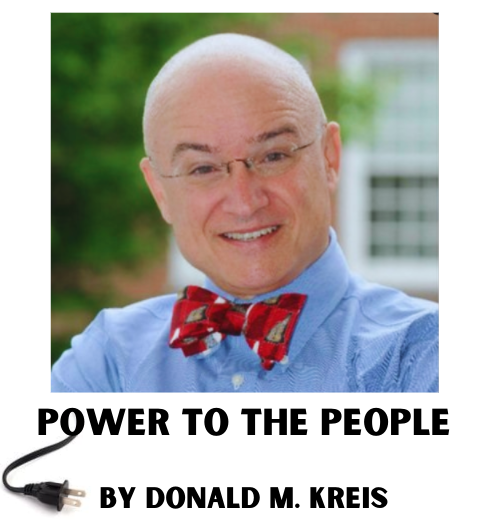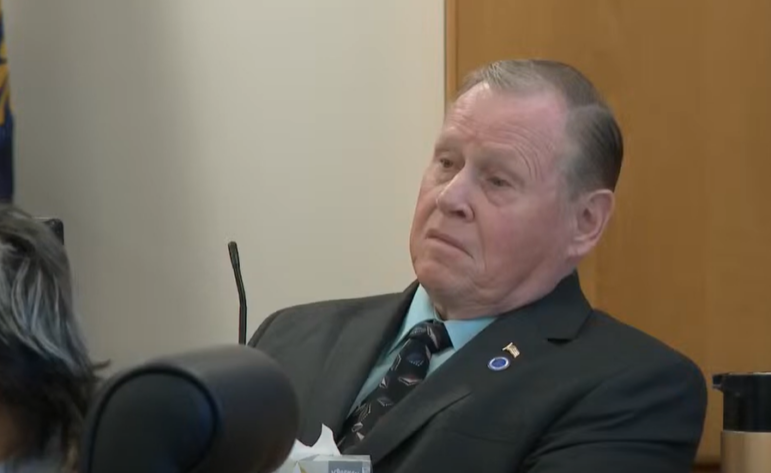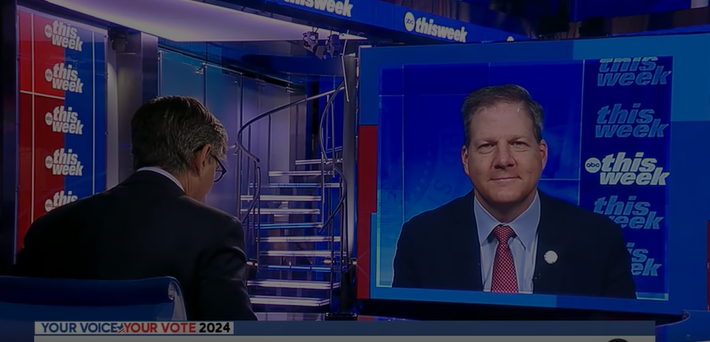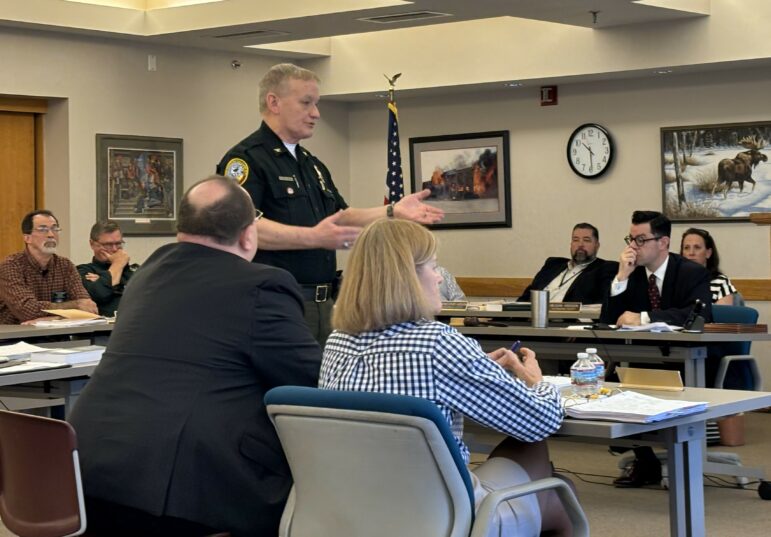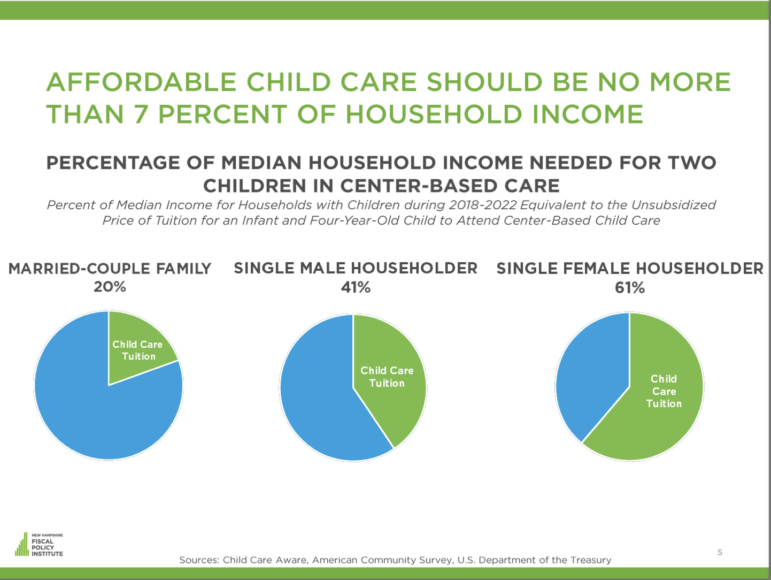
By GARRY RAYNO, InDepthNH.org
“Summertime and the living is easy/Fish are jumpin’ and the cotton is high.”
The famous George Gershwin song from his opera Porgy & Bess always comes to mind when Concord lawmakers finish their work, except for the governor’s vetoes.
This week the House and Senate acted on the conference committee reports, had their group photo and then went home until they return this fall to act on the governor’s vetoes.
Lawmakers running for office like to end the second year of the term by Memorial Day weekend to have all of June to campaign before July and August when politics is not the top of people’s agenda.
When the last week of May ends, most everyone from lobbyists to staff, from politicians to activists, and from commissioners to the media, breathes a sigh of relief, takes time to decompress and tries to make sense of what happened the last five months.
However, this year feels different.
The last term began sadly and strangely as the newly elected House Speaker Dick Hinch died from COVID before the session even opened.
Other long-time members were lost during the term including House Minority Leader Renny Cushing, and representatives Kathy Rogers, David Danielson, Doug Ley and Barbara Shaw.
Along with the deaths, legislators had to cope with the on-going coronavirus pandemic that forced the House to meet first in Durham, then in Bedford and finally Manchester before returning to Concord this spring.
The Senate moved across the hall and met in Representatives Hall for much of the term while committee meetings were live streamed and then returned to in-person sessions this year with remote access, although members had to be present to vote.
Before the sessions began last year, a number of Democrats who risked their health and lives to attend in-person sessions due to COVID, sued seeking remote access to the House sessions, but were denied by House Speaker Sherman Packard who said House rules need to be changed to do that.
The Democrats tried four or five times to change the rules but Republicans voted them down. Having a dozen or so fewer Democrats made the slim difference between the numbers of Republicans and Democrats a little more comfortable for the majority.
The case has yet to be finalized.
This term would never be described as typical in many ways.
The party hostility was turned up significantly this term and the traditional decorum fell victim to the culture wars raging in Washington and elsewhere around the country.
Issues that had been settled for years, much like Roe vs. Wade before the Supreme Court, were overturned this term like banning abortions and school choice.
The changes in long-held state policies were not minor but major.
The education freedom account program passed in the two-year biennial budget is probably the most expansive in the country, with few guardrails to prohibit state spending for religious instruction and a ballooning expense approaching $9 million. Education Commissioner Frank Edelblut predicted it would cost less than $300,000 the first year.
New Hampshire has never banned abortion, although it has long had a parental notification law, but this term it prohibited abortions after the 23rd week of pregnancy, the only exception is for the life or health of the mother, required an invasive ultrasound for any abortion procedure, and health care providers who violated the law faced felony convictions.
Some of that was walked back this year, but much remains.
The legislature spent enormous amounts of time on bills related to COVID-19 vaccines and face masks and who should be subject to restrictions.
The politicization of COVID did not escape New Hampshire.
The heated debate over that issue and others such as gubernatorial authority in an emergency reflected the change in the Republican agenda from years past, as it took on a far right leaning tone driven by the Libertarian/Free State wing of the GOP.
The partisan divide in the legislature was no more apparent than in the redrawing of the political boundaries for congressional districts, the executive council, and the state Senate and House, which has to be done every 10 years to align seats with population shifts.
With Republicans in control the maps reflected their desire to retain power.
The court finally stepped in and drew the congressional maps after Republicans and Gov. Chris Sununu could not agree on an acceptable map.
The Republicans proposed maps that would have moved 35 to 40 percent of the state’s residents from one district to the other, while the map the court’s special master recommends moved five towns’ 8,973 residents.
One map Republicans proposed would have put the state’s two US Representatives — Democrats Ann McLane Kuster and Chris Pappas — in the same district.
Democratic voters also sued over the new state Senate and executive council districts, but the suit is still pending in superior court.
The filing period for all state and federal offices opens Wednesday and runs until June 10, but most districts are settled at this time.
So while the next couple of weeks should be pretty quiet around the State House, it will be the calm before the storm.
New Hampshire, unlike most other states, requires its state elected officials to run for election every two years. No four-year terms for governor here.
While the short time frame allows voters to check in and make their voices heard on their elected leaders’ performances frequently, in this day and age, it also means election season never stops.
The upcoming election will determine the direction of the state. Do the majority of New Hampshire’s voters want to continue the road the legislature took the past two years, or do they want a different direction?
In the quiet of the summer, the candidates will be out and about trying to perfect their messages as they work their way to the September primary.
This is every citizens’ opportunity to question the candidates and find out what their positions are.
Many House members run under the radar and the last two years should be a lesson in the value of civic engagement.
Groups and political action committees are trying to help people learn who the candidates are and their positions.
If voters do not engage, they could be like the majority of Croydon residents this spring after a small number of their neighbors attended the school district meeting during a snowstorm and cut the school budget in half. The town had to go through hoops to hold a second meeting to restore the budget.
Stealth candidates should not be elected because they happen to be from one party or one ideology.
They should have to earn your vote. And that way the legislature will be more representative of the people of New Hampshire than this one has been.
Garry Rayno may be reached at garry.rayno@yahoo.com.
Distant Dome by veteran journalist Garry Rayno explores a broader perspective on the State House and state happenings for InDepthNH.org. Over his three-decade career, Rayno covered the NH State House for the New Hampshire Union Leader and Foster’s Daily Democrat. During his career, his coverage spanned the news spectrum, from local planning, school and select boards, to national issues such as electric industry deregulation and Presidential primaries. Rayno lives with his wife Carolyn in New London.

